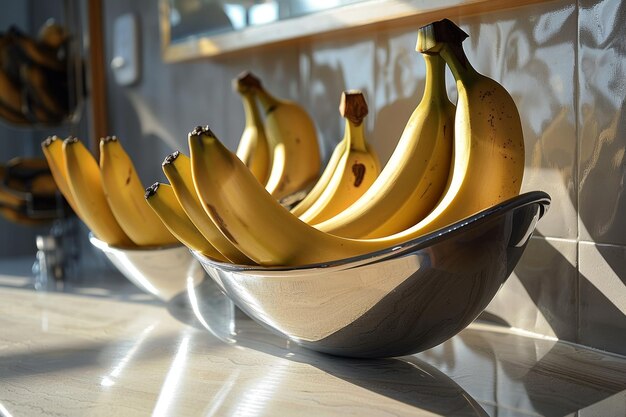Should You Keep Bananas in the Refrigerator? A Complete Guide to Food Storage & Shelf Life
Bananas are one of the most popular fruits worldwide, admired for their natural sweetness, easy-to-eat format, and nutritional benefits. Yet, a common question that stuns many households is, should you refrigerate bananas? Let's peel back the layers of confusion around banana storage and explore this topic from multiple angles.
🍌 The Basics of Banana Storage
Understanding the Ripening Process
Bananas, like many fruits, experience a natural ripening process driven by the release of ethylene gas. This process turns the fruit from green and starchy to yellow, sweet, and soft. The ripening continues until the skin becomes brown and the fruit is overripe.
- Green Bananas: Starch-rich and firm, ideal for those who prefer less sweet flavors.
- Yellow Bananas: Peak ripeness with balanced sweetness and texture.
- Brown Bananas: Overripe, perfect for baking or smoothies.
The Impact of Refrigeration
When bananas are kept in the refrigerator, the cold environment disrupts the natural ripening process. While the pulp remains unaffected in terms of taste and texture, the peel turns brown and unsightly. This change leads many to avoid refrigerating bananas altogether, fearing spoilage.
🍌 When Should You Refrigerate Bananas?
Saving Ripened Bananas
If you're aiming to extend the life of bananas that have already ripened, refrigeration becomes a valuable tool. The cool air slows further sugar conversion and oxidation within the fruit, preserving its taste and freshness for a few days longer.
Key Tip: Only refrigerate bananas once they reach your desired level of ripeness.
The Lowdown on Longevity
Here’s a quick overview of when refrigeration can be beneficial:
- Non-Refrigerated Bananas: Enjoy within 1–2 days after reaching peak ripeness.
- Refrigerated Bananas: Extend viability for up to a week post-ripening.
🍌 The Side Effects & Myths
The Effect on Nutrient Content
A frequent myth is that refrigeration strips bananas of their nutritional content. In reality, vitamin and mineral content, such as potassium and vitamin C, remain intact. However, perception often trumps reality as the brown peel is mistakenly associated with spoilage.
Bananas and Environmental Conditions
Refrigeration is not inherently bad for bananas. However, it’s important to consider your local climate:
- Tropical Environments: Room temperatures welcome quicker ripening, making refrigeration advantageous sooner.
- Cooler Climates: Natural ripening times are slower; peels may not brown as swiftly.
🍌 Alternatives to Refrigerating Bananas
Ripening Techniques
If you want to hasten the ripening of green bananas without compromising them in the fridge:
- Brown Bag Method: Placing bananas in a paper bag traps ethylene, accelerating ripening.
- Proximity to Other Fruits: Storing bananas with apples or avocados can speed up the process due to shared ethylene gas emissions.
Using Overripe Bananas
Overripe bananas lend themselves well to culinary uses, minimizing waste:
- Smoothies: Blend them into your favorite concoctions.
- Baking: Use them in banana bread or muffins.
- Freezing: For long-term storage, peel and freeze bananas for future use in recipes.
👩🍳 Practical Tips for Banana Lovers
How to Store Bananas Effectively
- Ambient Ripening: Allow bananas to ripen naturally in a fruit bowl, free from plastic.
- Refrigeration Timing: Move bananas to the fridge post-ripening to extend shelf life.
- Avoid Moisture: Keep bananas in a dry environment to prevent premature spoiling.
- Separation Technique: If ripe, detach from the bunch to slow down the ripening of the remaining fruit.
Skimmable Summary 🌟
- 🟡 Room Temperature: Ideal for ripening and consumption within days.
- ❄️ Refrigeration: Best for already ripened bananas to prolong freshness.
- 🍯 Overripe Use: Perfect for smoothies or baking to reduce waste.
- 📦 Storage Technique: Paper bags and separation are effective tools.
🍌 Wrapping It Up
Bananas, with their versatile nature, offer numerous possibilities for storage and consumption. Whether you're enjoying them fresh, extending their life through refrigeration, or employing them in baking, these practical insights ensure you make the most of these nutrient-rich fruits. Remember, the key lies in recognizing your preferred ripeness level and strategic storage decisions. Happy eating!

